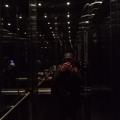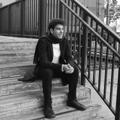Once in about the year 2001 previous to the events of 9-11, I was in college and not enjoying the experience. I set foot into a store called On Cue which had an assortment of items such as cds and books and lava lamps. In a section, somewhat to my then irritation, marked metaphysics, was the book The Demon Haunted World I was a psychology major at that juncture, and the emphasis was on science and metaphysics was a naughty word. Surely, Sagan, preeminent among scientists would not have written a metaphysical book?
The book, when I read it then, had a huge impact upon me. It was not so much what it said, but rather that I believed much in an opposite way to what it was saying. The same was true of my psychology major which was part of my misery. What Sagan had to say about science became, to me, the exact sort of arguments as to why science could not work. I appreciated much of what Sagan was saying about the method, we simply disagreed on how and why and when it could be used and what the limitations of such a method were.
What I did not remember having read it again was all the alien abduction time and energy Sagan put into this book, along with fairly frequent allusions to Satan or Satanism or all the above. Nearly half the book is about this content. When someone spends that much time on trying to refute something, the old quote "Thou doth protest too much" comes to mind. Sagan, being a major part of the space community, was in a position to know some things others did not. Whether or not he neglects to mention those things or looked the other way is a matter of opinion on the basis of this book. At the very least, some large mechanisms of denial are present.
The book then, was metaphysical after all mostly because it is not resting on science to prove or disprove any of these claims, but it talks about how science ought to work or does work. A discussion of that sort is epistemological, which is necessarily metaphysical.
Likewise, Sagan finds himself in domains he does not fully understand. When he goes after astrology, it appears that he is going after a simple sun sign. A sun sign is no where near the operational definition of astrology just like the term mathematics does not fully describe quantum mechanics. One must learn quite a lot of very specific mathematics before one begins to be conversant on a quantum matter. Why then does Sagan not invest the time in properly defining astrology? Probably because he is using a straw man version to kick around. He's guilty of this several times over in this work.
What I noticed now, with the wisdom of twenty years added to my tenure on the planet in this work is that Sagan is struggling between his natural childhood inclination to believe in magical things, and the world of adults and what is real and pragmatic. The child Sagan grows up into an adult who though they might wish magical things were real, cannot find a platform on which to stand in order to substantiate their existence and so concludes no such things are real. Instead, the magic is transferred to the laws of nature and what one can do with them. These laws in Sagan's mind are codified within the body of Science.
Alas, the candle of science is not going to keep the demons away. For that, one is more likely to have success with a Bible. The reason science cannot keep the demons away is because it does not believe in them in the first place, which suits the demons just fine. Though Sagan takes careful pains to bash the Bible as being blood-thirsty, it occurs to me that nowhere did God suggest to Moses or Joshuah to build a hydrogen and/or an atomic bomb. No, it would seem those whispers were only heard by the God of Science, whoever or whatever that may be. When this bastard child that possibly destroys the whole globe was born, the scientists were lauded as heroes and geniuses. For every person science saves from death with penicillin, surely the potential to destroy the entire world of all living things negates the advance?
No one ought to go about life believing everything he or she is told. This includes works by scientists. If Sagan's book can withstand a scientific sort of scrutiny applied to it, would it not be the case that the work would pass his own test? And, on the other hand, if it does not, would that not mean it has failed in the endeavor it outlines? Herein lies the key. In the desperation to dismiss authority and find the limits of knowledge, one often finds themselves as an authority imparting knowledge. We become the shadow of the thing we were struggling to come to terms with. Unfortunately, Sagan does this.
Despite all this, however, I still found some gems in this book and again it has informed my thinking in a way it could not have done before and does not intend to do. Perhaps Sagan's book is close enough to some truths even if it is denying them that they sprout despite the wishes of the author. In that, I suppose Sagan would find himself in the company of Peter, and hopefully not in the company of Judas.












